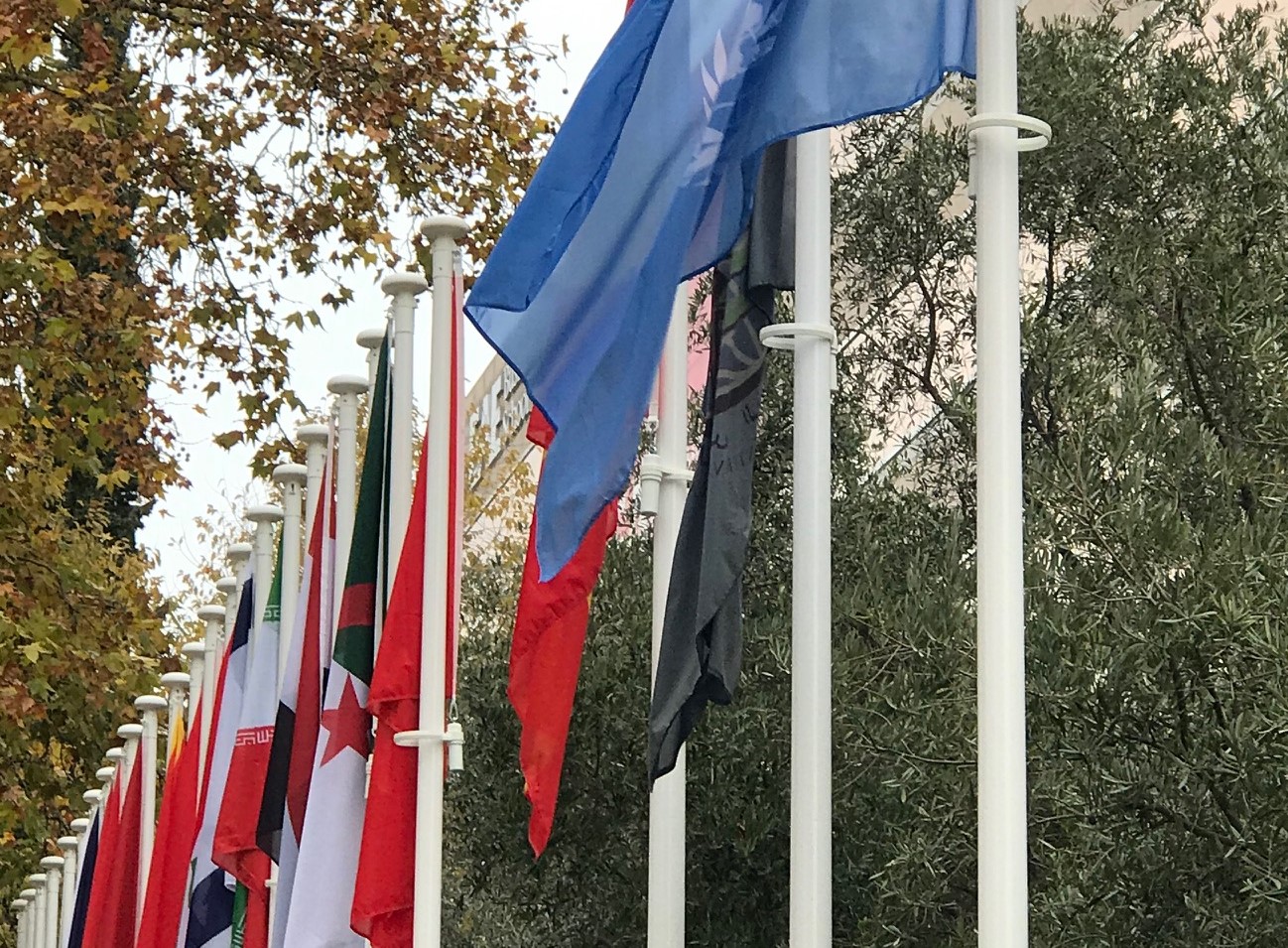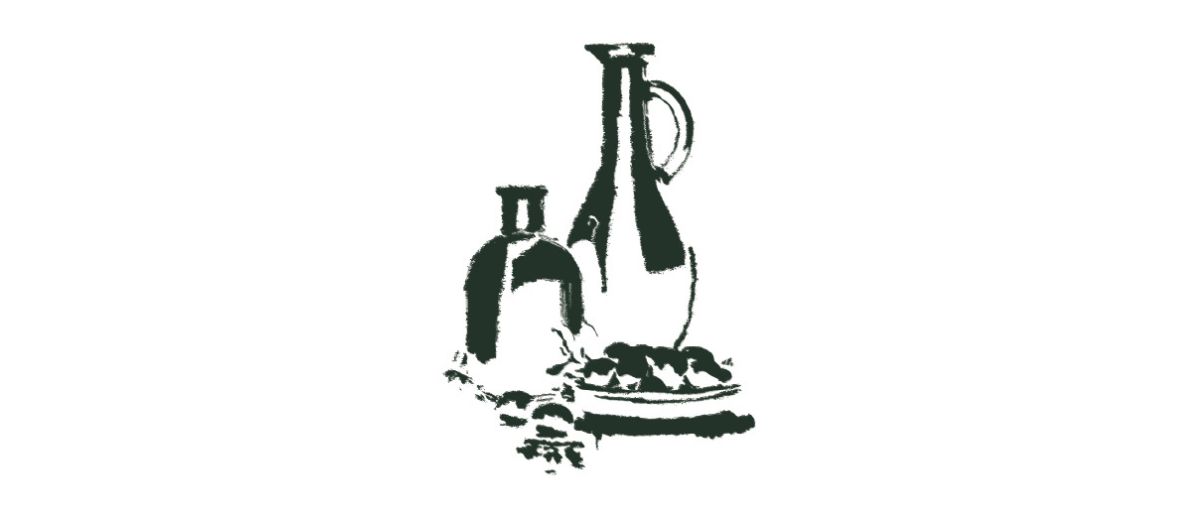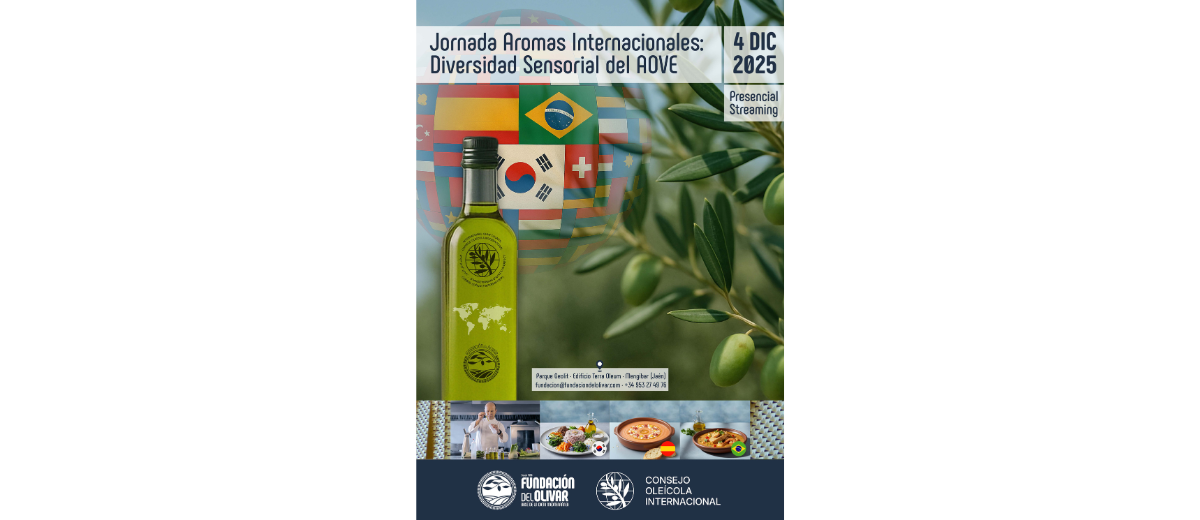Promoting olive products, disseminating information and the olive oil economy This area is of particular interest to the consumer. The IOC works on the following goals:
- To enhance the role of the IOC as a world documentation and information centre on the olive tree and its products and as a meeting point for all the operators in the sector;
- To promote the consumption of olive products, the expansion of the international trade of olive oil and table olives and information on the trade standards of the IOC;
- To support international and regional activities encouraging the dissemination of scientific information on nutrition, health and other properties of olive oil and table olives with a view to improving consumer knowledge;
- To examine the world balances for olive oil, olive-pomace oils and table olives, undertake studies and propose appropriate measures;
- To disseminate economic data and analyses on olive oil and table olives and provide members with the necessary tools to contribute to the smooth functioning of the olive product markets;
- To use and disseminate the results of research and development programmes linked to olive growing and study their applicability in boosting efficiency in production.
The Executive Secretariat plays a very important role in assembling statistics on production, consumption, exports, imports and starting and ending stocks of olive oils, olive-pomace oils and table olives. These data provide a clear picture of market conditions, allowing member countries to track developments, anticipate problems and take appropriate action. It also issues information on policies implemented in member countries related to the olive products sector and prepares profiles of olive growing countries.
Promotion is one of the key tools used by the IOC to help expand trade and strike a balance between production and consumption.
The main promotion activities are: designing campaign programmes in consultation with member countries; participating in promotional activities on the domestic markets of traditional producer and consumer countries; preparing market studies; conducting generic promotional campaigns in new markets; and producing informative material.
The IOC runs a scheme to award grants for programmes that promote olive oil and table olives in producer member countries. An IOC grant covers up to 50% of the total cost of the proposal.
When it comes to creating new market potential for olive oil and table olives, the IOC uses a different tool: it coordinates generic campaigns in collaboration with external agencies selected by public tender.
The campaigns are educational and planned according to scientific research, with a focus on the intersection between food and health. The goal is to raise awareness among consumers by emphasising the unique taste and range of olive oils and table olives and their health-promoting benefits. It is also to highlight the role of the IOC as an organisation that champions quality and whose member countries have strict quality controls in place to ensure the authenticity and quality of their products.
The Executive Secretariat strives to obtain maximum returns from promotion budget resources by establishing close cooperation with member countries and their national olive oil and table olive associations.
For further information, please consult the link below









